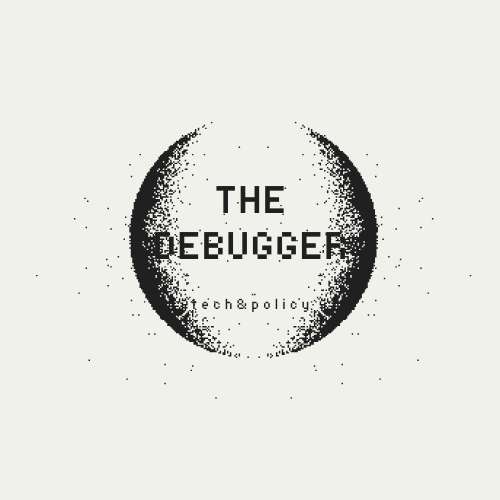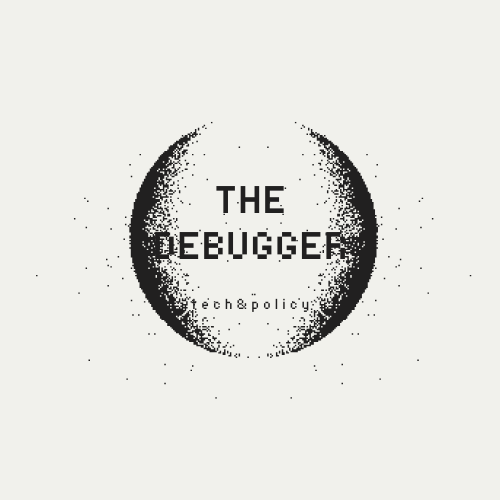Montly Report | April 2025

Dear reader,
A couple of weeks ago, I was talking through my phone to a friend who is very dear to me. And I remember that while we were joking about something, he said something like, "this sentence, in a trial and without context, sends you to prison immediately". We both laughed. What we were doing was actually commenting on the fact that Stripe, the payment system that is by default embedded in Ghost (the platform I use), decided to cancel my account. Apparently, The Debugger, according to Stripe's own statement, is "a business that is too high risk" for them. This came just a few days after I published an article on privacy, where I stated that companies like Meta ought to be illegal in order to preserve, and also to enhance, the health and the resilience of our societies (and with all the threats we are facing, we will need it). Just right after, I read that the CEOs of Stripe are now on Meta's board of directors. I thought that the cancellation of my account would be just a mistake, since this little community that we are slowly but steadily building here is not big enough to be affected by such boycotting practices. But then I came to notice that similar cancellations were occurring to well-established voices within the privacy-minded press and channels. And this brings me back to my friend's joke. We were chatting, but he was unconsciously acting as if we were being watched. And he is not the only one.
This is why I think that this article on privacy might be one of the most important pieces I put out there to this day. When we start to act as if we would be watched, listened to, and tracked (because we are), how is democracy remotely possible? If we start to be fearful - it does not have to be something dramatic; it all starts with small acts - of what we say, to whom we entrust our thoughts; if we do not have the freedom to wander in the company of our friends (many times this is how we sharpen our own thoughts, and is often the criterion of a true friendship) than I do not see that much of a difference between ours and a totalitarian regime. Because when the concentration of power is such that we start to automatically excerpt self-censorship upon ourselves, then to put it in classical terms, we do not live in a republic, but in a tyranny.
Europe is at a crossroads. The call for technological sovereignty is not a matter of creating the same Big Tech companies that already exist in the US, but with a European flag. Someone might say that this is just an alarmist thought. I hope that would be the case; I really do. But what I just see is that for some years now, we assist the phenomenon in which you can basically buy elections and program them: candidates that pop out from nowhere, farm bots that shape political narratives, electoral campaigns that are purchased to the surprise of no one. We are just living what might be the mighty culmination of a process that is not novel - it goes back at least to the invention of mass media.
This is why we have to be mindful of our choices. We need to engage with companies that do not use mass surveillance to make profit. For that purpose, I published a guide to help you take some steps towards better privacy. It might be a bit overwhelming, but you don't have to follow everything is in there. Privacy is a habit, one that is slowly built in time. There is something I will never stop repeating: we do not need to wait for perfect solutions. We need to aim for a better standard. And that already makes a whole world of a difference. Beyond what I publish here, I encourage you to do your own research, and I want to let you know that you can contact me if you need any help. I'll do my best to help you to the extent of my abilities and possibilities.
Talking about Big Tech, you might have seen that the European Union has fined Apple and Meta 500€ and 200€ million, respectively, in what seems to be a big antitrust operation from the side of the Commission. American Big Tech companies have been under scrutiny for some time now for infringing European data protection and regulation laws, as well as antitrust policies. But this fines seem to go beyond that: they seem to be one of Europe's way to retaliate against US' trade wars. And it makes sense: the US has long complained about its trade deficit, but what is usually omitted in all that Twitter/X & friends bravado is that the US is actually running a commercial surplus with Europe if we add services to the scale. And when we talk about services, an obvious ambit is technology and digital services. Also, these fines will presumably put pressure on Trump's inner circle, in which the CEOs and founders of many of these companies can be found. This might allow the EU to excerpt some pressure from within the US government, and it could be argued that Musk's spat with Trump over tariffs and his subsequent exit from DOGE, as announced three days ago, might be, at least partially, a result of that. This situation shows that the EU is not entirely powerless when it comes to retaliation against a US external policy which has proven to be particularly aggressive with its traditional allies. More than that, rather than something to be complained about, I believe that this creates an excellent opportunity for Europe to become more independent not only from an economic point of view, but on a political one: because in a moment in which our access to reality comes mainly through a bunch of US big companies, the fight for technological sovereignty is a fight for political and ideological sovereignty too.
In regards to technological sovereignty, two weeks ago the European Parliament published a report on defence and artificial intelligence. As stated here, in The Debugger, the use of automated weaponry is nothing new, but recently AI seems to be explicitly at the centre of the renewed arms race. That being said, I will go through the full report in the upcoming days, and I will publish a review of it, highlighting key points and figuring out where the report is heading. So far the report seems to touch topics that range from ethics and regulation to the state of the global AI arms race (in their own wording), so definitely it's going to be interesting to delve into this document. As always, I will keep you updated.
As a final remark, you might have noticed that this month, I published fewer articles: two instead of four. That's not only because of the Easter break but because of the length of the last two articles, which is larger than usual. That being said, I'll do my best to keep up with my publishing pace. May looks particularly busy, but it's all for good reasons, so I cannot complain. That being said, I will keep working for this project and, ultimately, for you, to whom all this is done, to the best of my capacities. I will also invest some time in figuring out credible alternatives to Stripe: I have already a couple of ideas but any suggestion will be more than welcomed. Also, I expect to announce major updates regarding The Debugger soon, around summer, so I am quite excited about that!
Thank you once more for being there. As always, I do not put any content behind a paywall, and I do not rely on ads or on centralised, private social media to support and promote The Debugger. I depend entirely on you, and to be honest, I don't want for it to be otherwise. If you think the work done here is important, please share it with others. Tell them to subscribe for free if you think this newsletter is worth it. Pass it over. And the same goes for the topics and sources discussed here, beyond this publication. If someone wants to start to improve its privacy, give that person a hand. You can also refer to the guide I published (I might create a comprehensive repository of privacy-minded solutions in the future as well) or, as I mentioned above, to me. You can always find me on Mastodon, or email me at thedebugger@tuta.com Because I should answer only to you, and that's what I intend to do.
Yours sincerely,
Gabriel

